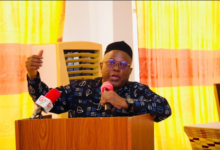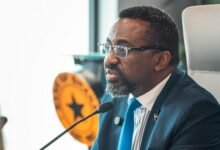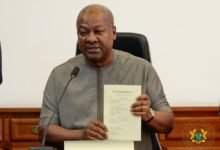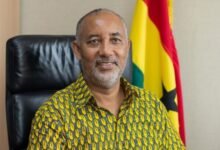
Institute for Fiscal Studies (IFS) a policy think tank, has advised the government to put in place robust strategies to set the country’s increasing debt ratio on a reducing course, as soon as possible.
The strategy, it said, should include strong revenue policies, to enable significant expenditure such as investment spending, to be protected while debt is reduced.
A research Fellow at IFS, Leslie Dwight Mensah, made this recommendation, in Accra yesterday, at the institute’s review of the economy, ahead of the mid-year budget presentation, next week.
Chronicling the public debt since 2016, he said the debt-to-GDP reduced in 2017 to 55.5 per cent from 56.8 per cent in 2016, increased to 57.9 per cent in 2018 and to 58.1 per cent in May this year, equivalent to GH¢200 billion.
With the International Monetary Fund (IMF) forecasting the ratio to rise to 60.5 per cent by the end of the year, he said it was imperative that the government moved to “prevent the debt burden from persisting on an upward trajectory”.
Mr Mensah asked the government to watch the ‘worrying’ extra-budgetary borrowing activities, like the issuance of bonds and borrowing through GETFund, as they stalled effective fiscal control.
From IFS’s analysis, Mr Mensah said revenue collection had been missed since 2017, with budgeted capital spending sacrificed to safeguard the government’s deficit target.
In the first quarter of the year, for instance, he said the government after recording a shortfall of 17 per cent, which accounted for GHȼ10.3 billion collected against a projection of GH¢12.4 billion, reduced it budgeted spending by four per cent.
“Over the last two years, the weak-performing areas of tax revenue were the same areas that experienced most of the tax cuts enacted by the government in 2017.
“This suggests that the tax cuts have contributed to the government’s failure to realise its revenue expectations,” he said, adding that the tax exemption regime reforms being sought by the government would be a game-changer.
On ways to improve revenue mobilisation, he advised that more attention be paid to non-direct taxes by revising user fees and charges levies by public agencies like the passport office, which had not changed over the years.
He also advised the government to check the uptake of government securities by foreign investors to reduce the exchange-rate risks associated with them like the 8.3 per cent exchange rate depreciation in the first half of the year.
Generally, he said Ghanaian economy has had a decent run of growth since 2017 to the first quarter of 2019, with annual economic growth averaged 7.2 per cent in 2017/2018, the highest for any two-year period since 2012/2013.
The macro-economy, he said, had seen greater stability since 2017 with decreasing inflation, relative currency stability and falling nominal interest rates.
“The first quarter 2019 growth was also strong, coming in at 6.7 per cent year-on-year,” he said, but advised the government to improve growth in non-extractive sector to ensure diversified overall economic growth to boost employment.
BY JONATHAN DONKOR







